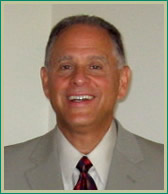
Pass It Forward
|
 |
|
| Tom Vona Senior Associate and Mentor |
To be inspired by those who are your superiors, those who mentor you, is a rewarding experience. To have it happen twice in one career is truly remarkable—and I am grateful to have enjoyed this experience. Once my administrative career began (after many years of trying to secure that first position), it advanced very rapidly and successfully, and that was largely due to the guidance and support I received from two individuals, in two separate school districts, who truly lived what they advocated. I benefitted from their wisdom, their integrity, their intellect, and their humanity. They had faith in me and what I could accomplish, and their support and guidance helped me to achieve goals I had set for myself. They were exceptional educational leaders who spent countless hours with me during the years I worked with them. In the process, they gave of themselves unselfishly. Because of their professionalism and vision of how things could and should be in a school/district, I learned so much from them that helped me to succeed and advance in my career.
The individuals to whom I am referring held very high standards and had high expectations of those with whom they worked. Some would say they were not the easiest people to have as direct superiors. My experience, however, was quite positive. From them I learned that having high expectations and holding people accountable are extremely important attributes of a leader. I also learned, though, that it is possible to discipline a subordinate while leaving his/her dignity intact. I came to understand when it is time to take a strong stand and when it is time to show patience and compassion. My mentors modeled these behaviors for me.
A leader must be able to solve problems and make decisions. On those occasions when I realized that I was having a problem in this area, they would wait for me to come to them with that problem rather than seeking me out. I really appreciated that practice, even when I realized they knew there was a problem. It demonstrated their trust in me, which was so important to my building self-confidence. It also taught me about collaborative decision making and working together for the betterment of the organization.
One of the most important skills that I learned was the significance of modeling positive behavior for the students and staff we came into contact with on a daily basis. A leader, whether in education or any other field, must model the behaviors that he/she expects others in the organization to emulate, especially when it comes to such areas as honesty, sincerity, courage, encouragement, decision making, treating others with respect, and demonstrating a true commitment to the goals of the organization.
To say that these two individuals not only “talked the talk” but actually “walked the walk” as to how they conducted themselves in the roles they played in their respective school districts is a great understatement. They are the two finest educational leaders I have met in my 43-year career in education. How was I affected? My entire career was different because of them. Both changed the course of my life—first by seeing in me the potential to fulfill the responsibilities of the position(s) for which I was to be hired, and second, by working with me, encouraging me, trusting me, and modeling behaviors for me that helped me grow into an educational leader who enjoyed success and could make a positive difference in the lives of the many students and staff members with whom I worked.
There is much to be learned from these two individuals for those in leadership positions today. First and foremost, one must have the intellect, the knowledge, the technical skills, and the “people” skills to lead an organization, whether a school or an entire district. Second, and equally important, there must be an authenticity to one’s leadership. There are those who can talk a good game, those who get into positions before they are truly ready to carry out the responsibilities that come with the position. A leader’s knowledge and dedication to the school or district must be genuine, authentic. Only an authentic leader can choose a strong supporting team with whom to work, and then possess the skills necessary to be a mentor the members of that team—just as the two individuals I have described were to me.
![]()
Center for Empowered Leadership ®
Email: info@cfel.org
Phone: 1.609.259.7911
